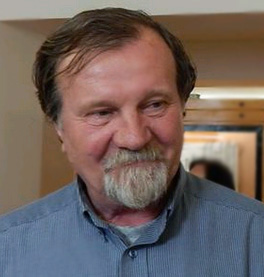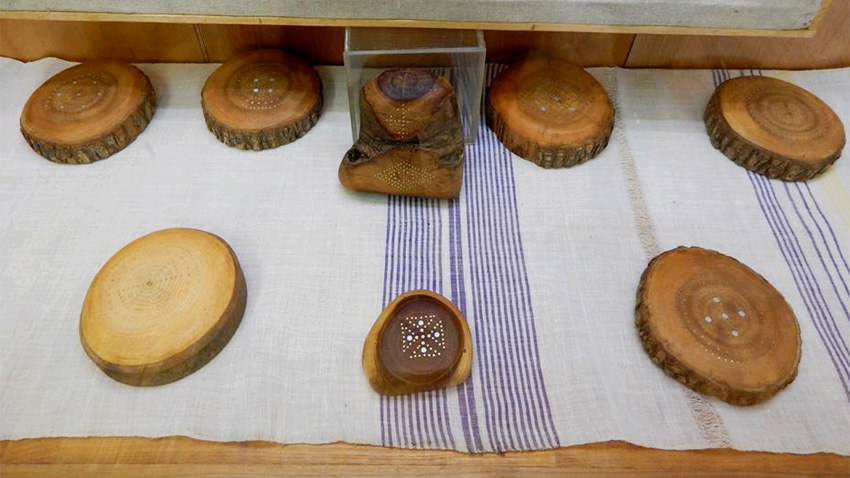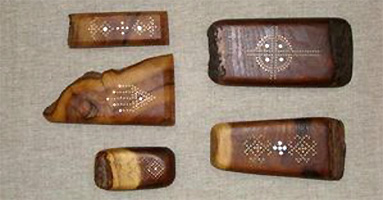Renowned Bulgarian ethnographer Angel Goev has been studying folk beliefs and ideas for more than 45 years, focusing mostly on those related to magic. He has been organising exhibitions of amulets and talismans that he makes himself. In order to create them he uses folk knowledge, passed from generation to generation, as well as archaeological data and ancient writings. We asked him why after more than 12 centuries of Christianity in Bulgaria, there are still people seeking a solution to their problems in magic and folk rituals.
 "You are talking about a short period of the history of mankind. Christianity is a relatively late religion and 2000 years are not so much. Since the very beginning of the human race man had to deal with a highly aggressive environment. Humans made the world inhabited by supernatural creatures, demons, magic, viciousness, and had since ancient times tried to confront them because they are much stronger than humans, according to beliefs back then. To protect themselves people had to build a magical defence system. As primitive beings, humans started using magic as protection or to influence the world around them. Only much later, when Christianity emerged, struggle against the so-called pagan beliefs and ideas started. But these ideas are rooted deeply and Christianity has failed to eradicate them completely. That is why folk beliefs related to magic are still alive to this very day,” Associate Professor Angel Goev explains.
"You are talking about a short period of the history of mankind. Christianity is a relatively late religion and 2000 years are not so much. Since the very beginning of the human race man had to deal with a highly aggressive environment. Humans made the world inhabited by supernatural creatures, demons, magic, viciousness, and had since ancient times tried to confront them because they are much stronger than humans, according to beliefs back then. To protect themselves people had to build a magical defence system. As primitive beings, humans started using magic as protection or to influence the world around them. Only much later, when Christianity emerged, struggle against the so-called pagan beliefs and ideas started. But these ideas are rooted deeply and Christianity has failed to eradicate them completely. That is why folk beliefs related to magic are still alive to this very day,” Associate Professor Angel Goev explains.
The purpose of amulets and talismans or so-called objects of power is to chase away evil and bring good. Amulets are used for protection but also for bringing success in every endeavour. In preparing amulets choice of the material used is of crucial importance - stone, bone, but mostly wood. Different amulets and talismans are made of different types of wood - hawthorn, dogwood, etc. and also from different parts of the trees. What matters is also the place where the tree had grown, as well as the time of day when the wood was taken.

There is another very important thing:
"Each amulet is different and no copies are made. No two men are alike. The requirements for creating an amulet for a particular person - its size, shape, material, etc. are determined through complex calculations, depending on the nature of the individual and the purpose of the amulet. There are two main types of amulets. In order to produce the first type one needs the person’s full name, date and time of birth. The second type are amulets, which are prepared in advance and are not personal. In that case they should attract your eye as people say. This means the amulet chooses the person or the person is attracted to it. The amulet passes through a number of rituals - fire, water, herbs and spells. Only then it becomes a true amulet,” Associate Professor Angel Goev says.
 Is there a possibility of using an amulet or talisman, not intended for us to bring the opposite effect and unleash some evil forces?
Is there a possibility of using an amulet or talisman, not intended for us to bring the opposite effect and unleash some evil forces?
"No! According to folk beliefs this cannot happen, because amulets are made for good purposeя. If not complying strictly with folk prescriptions in manufacturing of the amulet or talisman, it remains a simple object that has no power. But it cannot carry negative characteristics. There are cases when amulets are made for a specific purpose. And when the goal is accomplished, the amulet remains just a simple object. There are also cases when after having fulfilled its purpose, the amulet or talisman mysteriously disappears."
English: Alexander Markov
Nearly 340 participants from countries on different continents will take the stage at the Summer Theatre in Marno Pole Park in Veliko Tarnovo to present the their folklore traditions. The start is today, 20 July, when the traditional..
Products made of wool inspire the feeling of inner comfort and warmth in the visitors of the Plovdiv Regional Ethnographic Museum. The exhibition "Bulgarian felts - a message from antiquity" presents an ancient craft, which is..
The Hague, a city in the south of the Netherlands, the administrative centre and the place where the Queen lives and works... Hardly anyone associates this city with Bulgarian folklore and traditions. But the fact is that the interest in..
Halva, this sweet temptation with an oriental twist, is a welcome delicacy on the Bulgarian table, especially on holidays. Judging by the descriptions of..

+359 2 9336 661
